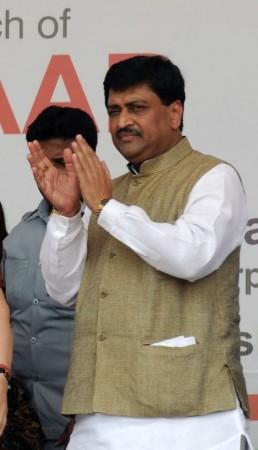
The Election Commission on Sunday served a show-cause notice to former Maharashtra Chief Minister Ashok Chavan for hiding accounts of expenses on media advertisements. It has also raised questions about Indian media ethics.
In the notice, the EC asked Chavan to explain why he should not be disqualified from contesting elections in relation to the paid news allegations. He has reportedly claimed that the advertisements were published beyond his knowledge.
"The commission is of the considered view that the respondent (Ashok Chavan) cannot validly claim ignorance about the publication of the above-mentioned 25 advertisements in which his name, the name of his constituency and also his photograph prominently appeared," NDTV cited a statement from the EC's order.
The EC has also warned the Indian media to avoid such incidences and asked it to abide by the ethics and laws.
"While every newspaper/media house is entitled to its own philosophy (which could be akin to a political party's philosophy), what is sought to be published as news should be untinged by such philosophy as different from editorial."
"The minimum that is expected of ethical journalism is that the reader is cautioned by suitable disclaimers while such articles are published so that the unwary reader can make suitable allowance in his mind while forming his judgement. This matter assumes greater significance in the election period when the media needs to show greater responsibility," the commission said.
Refuting the allegations of paid news, Chavan said that the EC has mentioned nothing about 'paid news' citing that those "advertisements were part of general elections."
"I have pointed out both before the EC and in earlier petitions in the courts that the advertisements were issued without my consent. So they do not amount to paid news," the Hindu quoted Chavan.
Abiding by the Supreme Court order, the EC had also issued a notice to Chavan in May for defying Representation of the People Act (RPA) and rules. After several hearings, Chavan was found guilty for giving an incomplete record of election expenses in 2009 state assembly polls.
Responding to EC's questions, newspapers— Lokmat, Pudhari, Deshonnati and Maharashtra Times— refuted the allegations of 'paid news' saying that they published those articles and advertisements as they either had links or due to inclination towards Chavan and the Congress party, according to The Hindu.
Not the First Politician Involved in Paid News
Ashok Chavan is not the first politician facing charges in connection with paid news for hiding accounts of media advertisement expenditure from the EC.
In January 2013, the EC had served show-cause notice to Madhya Pradesh Health Minister Narottam Mishra for breaking the RPA rules by committing a similar offense.
Again, in November 2013, he was penalised for articles published in local newspapers, which Media Certification and Monitoring Committee found in favour of Mishra and referred to it as paid news, according to various news reports.
The former Jharkhand Chief Minister and Singhbhum MP Madhu Koda also faced similar charges for misrepresenting expenditures in the 2009 Lok Sabha poll.
Uttar Pradesh MLA Umlesh Yadav became the first target in 2011 to be barred from contesting elections for three years under Section 10A of RPA. She was found guilty by the EC for not mentioning expenses of ₹21,250 on media advertisements in her election accounts. Press Council of India found the two newspapers— Amar Ujala and Dainik— guilty too.

















